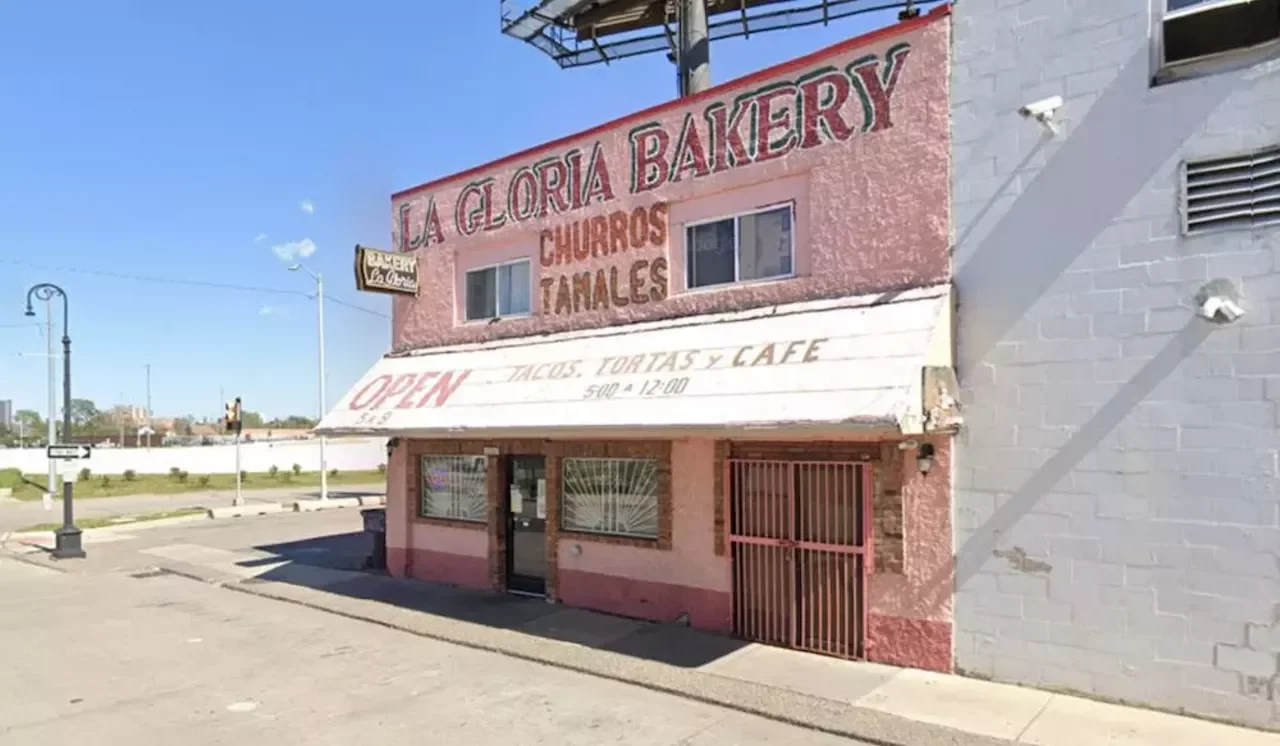Living in Mexicantown Detroit: Neighborhood Guide & Real Estate Insights
Photo of Mexicantown, Detroit by Maurizio Dominguez
Moving to Mexicantown? Here’s What It’s Really Like to Experience This Detroit Neighborhood.
Table of Contents
Where Is Mexicantown?
The Real Estate Market in Mexicantown
Michigan Central Station’s Impact on the Neighborhood
Food, Culture, and Community
Vernor Avenue & Local Landmarks
Parks, Green Spaces, and the Riverfront
Annual Events: Dia de los Muertos and More
Why People Love Living in Mexicantown
Where Is Mexicantown?
Nestled in Southwest Detroit, just west of downtown and north of the Detroit River, Mexicantown is one of the city’s most colorful, culturally rich neighborhoods. It’s a gateway to Detroit’s international character, blending generations of Mexican-American heritage with a new wave of investment, restaurants, and art.
The neighborhood stretches roughly from Vernor Highway to Fort Street, near Corktown and Michigan Central Station, putting residents minutes from downtown while maintaining its own distinct small-community feel.
The Real Estate Market in Mexicantown
Real estate in Mexicantown is as diverse as its culture. You’ll find everything from historic brick homes and turn-of-the-century duplexes to modern loft conversions and newly built townhomes.
As of late 2025, home prices in Southwest Detroit are typically in the range of $160,000 to $195,000, depending on condition and proximity to Corktown and Michigan Avenue. Mexicantown’s median home price is $175,000, according to Redfin.
The area remains one of Detroit’s most affordable urban neighborhoods, especially appealing to first-time homebuyers and investors.
Rental demand is also rising thanks to nearby job growth from the Michigan Central innovation campus and the ongoing revitalization of Corktown.
A Tight-Knit Community Through Detroit’s Hardest Years
Even through Detroit’s toughest economic downturns, Mexicantown remained a well-knit, resilient community.
While other neighborhoods saw waves of vacancy, families here continued to walk to local shops along Vernor Highway, mothers pushing strollers and greeting neighbors by name.
The strength of this community lies in its deep family roots, often multigenerational households that have lived on the same block for decades. This shared history and pride have created a culture where everyone knows each other, and traditions are passed from one generation to the next.
How the Gordie Howe Bridge Changed Housing Supply in Mexicantown
The construction of the Gordie Howe International Bridge brought significant infrastructure investment to Southwest Detroit, but it also came with challenges. Roughly 600 housing units were removed from inventory during the eminent domain “takings” required for the bridge footprint, leading to a sudden drop in housing supply.
With fewer available homes, prices and rents rose quickly, and many long-time residents were displaced from the area due to the shortage.
Over the past decade, commercial property values have also soared, as the bridge corridor and Michigan Avenue redevelopment continue to attract investors and small business owners.
Michigan Central Station’s Impact on the Neighborhood
No single project has transformed this area more than the rebirth of Michigan Central Station.
After decades of vacancy, Ford Motor Company’s massive restoration of the historic train station has turned it into a hub for mobility innovation, tech startups, and community events. The redevelopment brought thousands of new jobs and significant infrastructure upgrades to the surrounding area.
For Mexicantown, that means:
Increased property values and renovation activity
Improved walkability and lighting around Vernor and Bagley
A surge of local business investment, from coffee shops to creative studios
Learn more about the project from Michigan Central’s official site and Crain’s Detroit coverage of the redevelopment.
Food, Culture, and Community
Let’s be honest, people come to Mexicantown for the food first.
From iconic taquerias like Taqueria Lupita’s, Armando’s, and Los Galanes, to newer spots serving modern takes on classic dishes, the neighborhood’s restaurant scene is second to none in Detroit.
Don’t miss:
La Gloria Bakery for fresh conchas and bolillos
Honey Bee Market, La Colmena, a beloved family-run grocery
Xochimilco’s Restaurant, a Detroit institution known for its chimichangas and strong margaritas
La Gloria Bakery, Detroit
Open since the 1970s, La Gloria Bakery is considered a Detroit institution, serving generations of families in Mexicantown.
Street art and murals tell the neighborhood’s story; vibrant tributes to family, heritage, and perseverance. Walk along Bagley or Vernor Highway for some of the best public art in the city.
Beyond the well-known restaurants and bakeries that draw visitors from all over Michigan, Mexicantown’s local shopping scene offers a mix of beloved classics and hidden gems that only neighborhood regulars know about. Traditional stops like E & L Supermercado, a longtime staple for authentic groceries and imported goods, sit alongside community favorites like Sheila’s Bakery and Chilangos Bakery, both famous for their fresh pastries and warm, neighborhood feel. Hungry locals also swear by Taqueria Taco Veloz and Jaliscienses Taqueria and Market, where you’ll find some of the best tacos, tortas, and tamales this side of the border. These small, family-run businesses help define the flavor and soul of Southwest Detroit.
Vernor Avenue and Local Landmarks
Vernor Avenue serves as Mexicantown’s main shopping and business corridor, recently redeveloped with new lighting, curbs, sidewalks, and benches that enhance walkability and safety. It’s the heartbeat of Southwest Detroit, lined with small businesses, bakeries, and colorful storefronts that blend old and new.
At the center of it all is Clark Park, the heart of the community and home to year-round events. From summer soccer tournaments to a beloved outdoor ice rink in winter, Clark Park is where generations gather to celebrate, play, and connect (Clark Park Coalition).
Nearby, the Tianguis Market near Junction and Vernor offers a true taste of Mexican street culture, with locals selling everything from handmade crafts to fresh tamales and vintage goods.
In 2025, a major milestone for Vernor’s growth arrived with La Joya, a new-construction housing and retail development that brought modern apartments and fresh retail to the corridor. La Joya represents the next phase of Mexicantown’s evolution, new energy that complements the area’s historic charm.
Daniel Blandon
Southwest Detroit Real Estate Expert
Mexicantown in Southwest Detroit is home to many iconic murals.
Beyond Bagley: The Larger Southwest Detroit Story
To many suburban visitors, Bagley Street near I-75, with its iconic archway and long-standing restaurants, is Mexicantown. But few realize that the community stretches much farther west, all the way toward Dearborn, into an area known as Springwells.
This broader Southwest Detroit region carries the same vibrant culture, family-owned businesses, and community pride, though the housing stock differs, with more bungalows, colonials, and multi-family homes in the mix. Together, these neighborhoods form one of Detroit’s most authentic and enduring cultural districts.
Parks, Green Spaces, and the Riverfront
The nearby Ralph C. Wilson, Jr. Centennial Park, a $75 million transformation of Detroit’s west riverfront, is a game changer for Mexicantown residents. Opening in phases through 2025 and 2026, the park features:
Lush gardens and walking trails
The Delta Dental Play Garden with a massive water feature
The DTE Foundation Lawn for live music and community gatherings
Direct access to the Detroit Riverwalk, voted one of America’s best by USA Today
Just a short bike ride from Mexicantown, the park connects residents to miles of scenic trails, fishing piers, and event spaces, reinforcing why Southwest Detroit is one of the best areas for urban outdoor living.
Annual Events: Día de los Muertos and More
Every fall, Mexicantown hosts one of Detroit’s most moving traditions, the Día de los Muertos (Day of the Dead) celebration.
Community altars, parades, music, and art installations fill the streets to honor loved ones who have passed. The event, supported by local businesses and the Detroit Institute of Arts, draws visitors from across the state and beyond.
Other local highlights include Cinco de Mayo parades, Vernor Street festivals, and year-round cultural events that make every weekend feel like a neighborhood block party.
Why People Love Living in Mexicantown
Residents describe Mexicantown as warm, welcoming, and authentic, a place where neighbors still look out for one another, and new faces are met with genuine hospitality.
With its growing economy, cultural energy, and proximity to downtown and the riverfront, Mexicantown is quickly becoming one of Detroit’s most desirable places to live, while still staying true to its roots.
Thinking About Moving to Mexicantown?
Whether you’re drawn to the art, the tacos, or the community spirit, Mexicantown offers a lifestyle you won’t find anywhere else in Michigan.
Contact Gilson Home Group today to work with a Spanish-speaking agent and for the latest listings, local insights, and expert guidance on buying or investing in Detroit’s Southwest neighborhoods.



